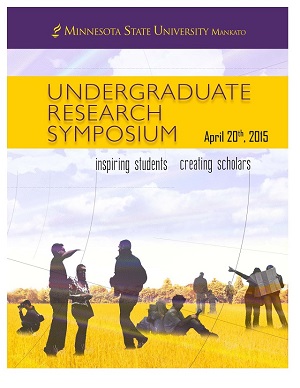What is Real? The Uncanny in E.T.A. Hoffmann's Der Sandmann
Location
CSU 202
Start Date
20-4-2015 3:15 PM
End Date
20-4-2015 4:15 PM
Student's Major
World Languages and Cultures
Student's College
Arts and Humanities
Mentor's Name
Nadja Krämer
Mentor's Email Address
nadja.kramer@mnsu.edu
Mentor's Department
World Languages and Cultures
Mentor's College
Arts and Humanities
COinS
Apr 20th, 3:15 PM
Apr 20th, 4:15 PM
What is Real? The Uncanny in E.T.A. Hoffmann's Der Sandmann
CSU 202
Recommended Citation
Geistfeld, Danielle. "What is Real? The Uncanny in E.T.A. Hoffmann's Der Sandmann." Undergraduate Research Symposium, Mankato, MN, April 20, 2015.
https://cornerstone.lib.mnsu.edu/urs/2015/oral_session_14/3





Comments
This project focuses on the short story "Der Sandmann" by E.T.A. Hoffmann. Originally published in 1817, "Der Sandmann" tells the story of Nathaniel and his struggle to distinguish what is real and what is fantasy, his descent into madness and his ultimate, yet ambiguous, vindication in the end. E.T.A. Hofmann was a prolific writer of the German Romantic period (1795-1848), authoring works such as "The Nutcracker and the Mouse King", the literary original of the well-known ballet by Tchaikovsky. Poe, Dickens, Kafka, Dostoevsky and Alfred Hitchcock all name Hoffmann as a major influence – he is widely regarded as the father of modern fantasy, detective and science fiction literature. Hoffmann wrote extensively about the weird, the fantastical: the uncanny. But what does it mean to be uncanny? This project examines this question and explores the ideas presented in Hoffmann’s two-century-old text, whose ideas play out prominently in contemporary American popular culture.